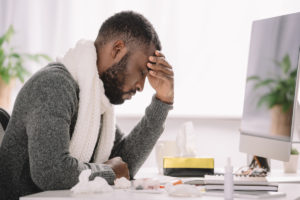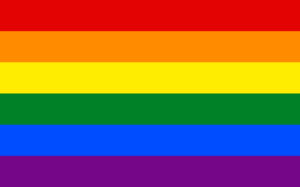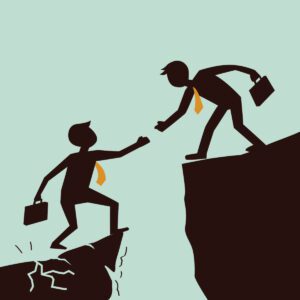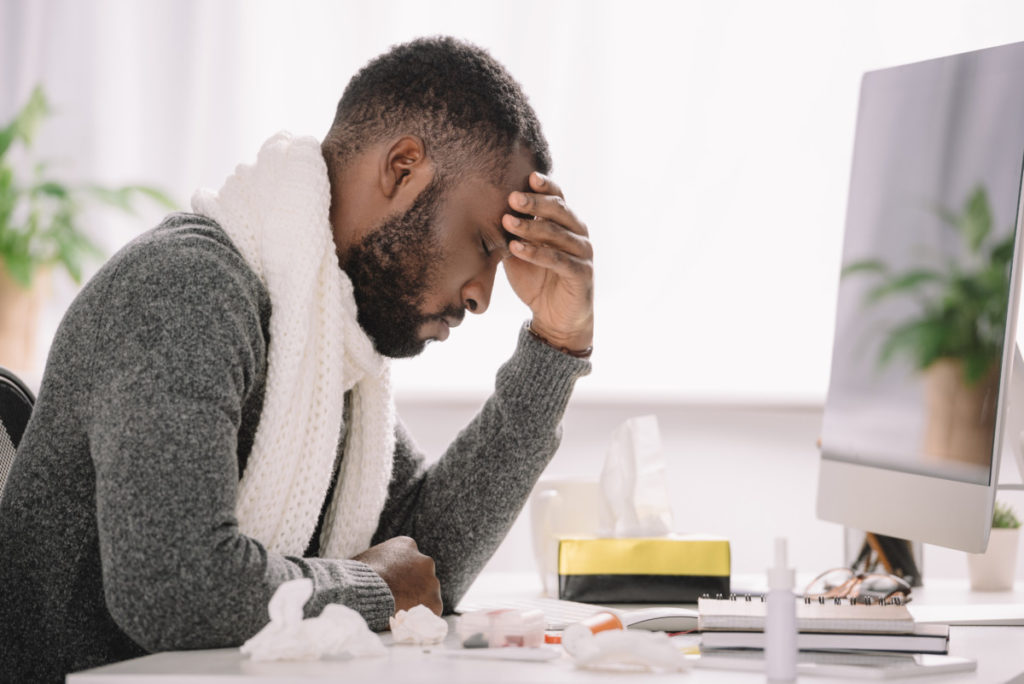 Gay Men Coping with Stress: Start at the Source
Gay Men Coping with Stress: Start at the Source
At the time of this writing (June, 2020), we, as a country, in the United States, and all of us in the world are experiencing unprecedented times, and not in a good way. Since into the first quarter of 2020 (some would say even before), our world has had to deal with the impact of COVID-19 and its implications for work, social lives, and personal operations, and most of us continue to live under various levels of “lockdown” or “quarantine” conditions, with only tentative and risky relief in various locales, with a general feeling that “the powers that be” are conflicted between the health safety of the people versus an economic (oligarchic) machine that must be fed by labor for the consumerism of the modern world.
While some countries have had the solace of sound, comforting, and inspiring leadership, the United States has not (except for some progressive state governors, but even they are under pressure to balance human lives with profit margins). The conditions living under a rogue and selfish/immature/incompetent “President” (Trump) are like a young child who is left alone with no parents present in the home. The result is increased anxiety not only for the disease, but also for the lack of leadership and resultant chaos, lately manifested in the national and global protests after the murders of Ahmaud Arbery in Georgia (my previous article on that was, “Why Gay Men Should Be Supporting Black Lives Matter”) and George Floyd, killed by a rogue police officer emboldened by his support of the Fascist/racist Trump.

The fact that this is happening in the month of June is poignant in that it was in June (1969) that the abuses of police brutality spurred the Stonewall Riots and the modern LGBT+ rights movement. The daily news about any of this has an impact on everyone in general, and minorities (Black Americans and LGBT+, especially) in particular. One of the greatest sentiments I hear from my (online) clients as a gay men’s specialist therapist and life/career/relationship coach and sex therapist (28 years) is that “my guys” are feeling overwhelm.
So, how do we cope with overwhelm?
Steps to Handling Overwhelm
The first step to solving (or at least mitigating) any problem is to identify it. Like diseases, we have to assess and diagnose before we can develop a treatment plan and expect good outcomes (which is true in medicine as well as mental health). When I hear feelings of overwhelm from clients, I first recognize and validate their feelings. Of course they’re overwhelmed (I am, too, frankly; therapists are not immune from having to face some of the same stressors their clients are facing).
The second step is to recognize that overwhelm is the cumulative force of a combination of stressors, which can be shared in common (the global COVID-19 pandemic) or individual (such as personal financial stress, job loss, income reduction, non-COVID medical issues, or even problems that would exist for us as individuals even if COVID-19 were not in the picture this year; the same problems and challenges don’t disappear just because there is also a global crisis).
To cope with overwhelm and begin to reduce it, understand that overwhelm comes from more and more individual stressors creating a “snowball” effect, and to reduce them, we have to take the stressors and resolve them the same way they came: individually.

Stress Reduction Exercise
Let’s try an exercise for this: Make a list of things that you’re stressed, concerned, or worried about. This helps get the jumble out of your head and onto a clear, structured list.
Next, identify when they started. Are they chronic, like a long-term health condition? Or are they recent, such as a COVID-related job layoff?
What is the “fuel” that keeps the stressors going? A chronic illness might not be “curable,” but requires ongoing treatment to reduce symptoms or preserve life (such as with HIV). Another stressor might be fueled by an ongoing toxic relationship, such as having a bad bass or being in an unhappy marriage. Which stressors are chronic, versus which ones are stressful, but acute and likely to have a short duration if you can get the right help (such as a home repair or car repair)?
Next, identify each stressor’s relative impact on your life. Losing your job and having no income might have a bigger impact on your life than needing to deal with an important/annoying home repair. You might need to have an urgent response, such as applying for Unemployment benefits or identifying alternative work income. Other stressors require a less-urgent response, such as having sex therapy for a sexual dysfunctional, which is important, but not urgent.
By reviewing your list of stressors, see if you can identify a theme. Common themes I hear (or even experience) include 1) Abuse of Power; 2) Lack of Resources; 3) Sense of Helplessness; 4) Interpersonal Conflict with Selfish People; 5) Fighting Mother Nature; 6) Being Victimized by Circumstance (government policy, bureaucracy, the legal system).

Internal Resources
Reducing overwhelm and starting to fight back to reclaim a sense of peace and relative “normalcy” (which is never 100 percent stress-free, remember) means identifying what Internal Resources you have to work with. Internal resources are those parts of ourselves that we call on when the going gets tough. Examples are 1) Sense of Determination; 2) Affect Regulation (the ability to calm our own nerves and think with a clear head and not let our emotions rule us); 3) Confidence (challenging any negative self-talk or negative messages that we have internalized from abusive, critical, selfish, or bigoted sources); 4) Values (sticking up for what we believe in, that form the core of who we are as humans, and what is important to each of us, in our own way, which may differ from others); and 5) Self-Talk (what we tell ourselves, about ourselves – which can help or hurt us, depending on what we are saying inside).

External Resources
Once we are “armed” with our internal resources, we seek out our external resources. These can be government programs that offer income replacement, having consultation from an attorney, having guidance from an admired/mentoring boss figure, getting support from family (especially the (occasional) wisdom of older parents, but certainly from siblings who come from our own generation), having the love and support of a spouse/partner, gaining access to a professional/expert (such as a therapist or coach ???? ), searching out a website that has answers to our (sometimes very specific) questions, or reading a book/article (free, or something we buy).
Problem-Solving Therapy
One technique of the many I use with clients includes a classic technique called Problem-Solving Therapy (PST). This is especially helpful for reducing overwhelm and coping with multiple stressors. Basically, PST involves a number of sequential steps: 1) Identify the problem; 2) Brainstorm possible solutions (go wild with this; let your imagination fly; there are no “wrong” answers with this); 3) Evaluate your options (some brainstormed ideas are going to be more plausible, affordable, convenient, existent, etc. than others); 4) Implement your choice of intervention (taking the actual action after careful consideration); 5) Evaluate the impact of your intervention (what worked, what didn’t, what could be adjusted for greater effectiveness); 6) Maintain or revise your response as conditions change; and 7) Repeat the process as necessary if a problem recurs, or new problems arise).
PST for Gay Men
PST for gay men in particular is different because our internal and external resources are different. The LGBT+ community in general, and gay men in particular, have a long history of striving for equal rights under the Law, a struggle that continues against the Republicans and anti-gay religious conservatives worldwide. But we want to use our special internal and external resources (such as community strengths and the resources created by working together to help each other in the community) to fight those who would oppress (and there are many). But our unique LGBT+ challenges also evoke unique strengths and creative responses, which keep us from being vanquished. This is the Spirit of Stonewall, that we keep revisiting every June to keep the striving for equal rights to life and dignity alive.
Doing the work of PST is systematic and can be time-consuming, but if you apply your unique internal resources and your external resources to your brainstorming, you will probably find that eventually each stressor can be taken off your list, one at a time (or maybe more), and you feel less stressed and less overwhelmed. And that’s something we all could use these days!

While COVID-19 will someday (not soon enough, but eventually) subside, we will continue to have both individual and collective/social problems. We need to continually apply active adapting coping throughout our lifespan to deal with the curveballs Life throws us. Having a commitment to life-long self-care and the continuous pursuit of self-improvement will help us age with refined coping skills and ever-increasing wisdom, which is one of the good parts about getting older. Our interpersonal relationships, being active in social/political reform, and adapting to a changing world (with its related technology) are also considerations, perhaps for another time. But for now, recognize that your overwhelm can diminish; it’s important to start from a place of hope and confidence. This, too, shall pass. Happy Pride Month!
For more information on therapy and coaching services available at Gay Therapy LA, call/text 310-339-5778, or email Ken@GayTherapyLA.com. Also visit GayTherapyLA.com/blog for a library of hundreds of helpful articles, or the “Gay Therapy LA with Ken Howard, LCSW” podcast show, now with over 50 episodes.


